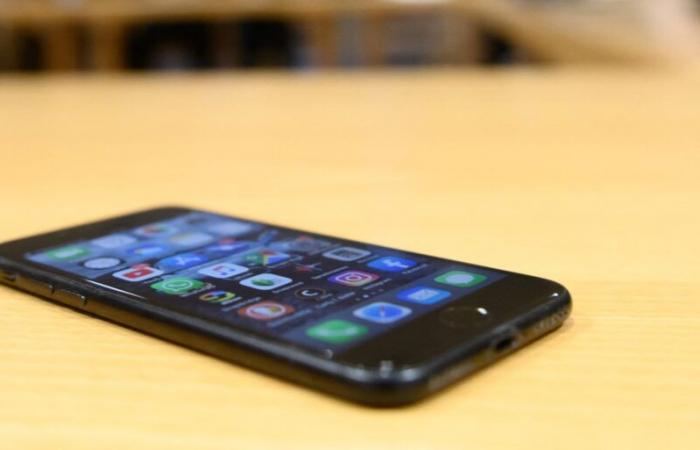Faced with the market slowdown, telephone operators are waging a merciless war, causing prices to fall spectacularly. On average, the prices of mobile plans including 10GB of Internet have fallen by 38% over one year. Explanations.
The drop in the prices of telephone plans was once again illustrated on the occasion of Black Friday: among French operators, fixed and mobile offers have been selling at historically low prices for several months, thanks to the maturity of the market. Offers are multiplying online, where mobile plans seem to have an ever lower price and an ever higher amount of data.
The rest after this ad
According to the monthly barometer carried out by the online price comparator Ariase, the average price of a mobile plan including 10GB stood at 10.68 euros, a drop of 38% over one year. The prices of fixed and internet subscriptions also fall by almost 13% over one year, to 28.51 euros per month.
The rest after this ad
Price war
“Overall, prices in Europe are still very low compared to prices in other regions of the world, particularly compared to the United States. And within Europe, France is particularly low on landlines as well as on mobile”, specifies to AFP Romain Bonenfant, general director of the French Telecoms Federation (FFT). The four French operators – Orange, Bouygues Telecom, SFR and Free, accompanied for the first three by their low-cost brands Sosh, B&You and Red by SFR – regularly align on prices which they lower in turn.
“Clearly, we are in a rather intense phase, especially since the summer,” observes Sylvain Chevallier, telecoms specialist and partner at the consulting firm Bearing Point. A situation linked to increased competition in the market since the arrival of Free in 2012, seven years after the conviction of SFR, Orange and Bouygues Telecom for illegal agreement. But the rapid drop in prices since the start of the year is mainly due to a market which is, on the contrary, experiencing a definite slowdown.
The rest after this ad
The rest after this ad
According to the latest quarterly report published at the beginning of October by the Regulatory Authority for Electronic Communications and Posts (Arcep), the number of mobile subscriptions increased from 75.5 million to 76.5 million in one year. As for fixed subscriptions, their number increased by 1%. A “ridiculous” increase compared to previous years, comments Sylvain Chevallier. According to Arcep, this slowdown in the growth of mobile plans has been observed since the fourth quarter of 2022.
“Fixed costs”
“In a market that is no longer growing, the only way for operators to grow is to seek subscribers from the competition,” continues the Bearing Point analyst. And therefore to lower prices. A dynamic facilitated by the sector. “It’s a saving in fixed costs, telecoms,” explains Romain Bonenfant. “Once you have installed a network, having more or fewer customers does not bring many additional costs.”
As for customers, they are also increasingly free to move from one operator to another. According to the Arcep report, “the proportion of commitment-free packages (…) continues to increase”, reaching 79% in the second quarter of 2024, or three points more in one year. But this race to the bottom does not have the same implications for operators. If three of the four operators recorded an increase in their mobile subscribers in the third quarter, SFR saw their number decline again.
Faced with this uncertain market sharing, the diversification of activities continues among operators, who are focusing in particular on new technologies. For example, Orange announced on Monday the launch of a new artificial intelligence offering for businesses. And the strategy could pay off. Because according to analyst Sylvain Chevallier, the price level could “difficultly fall”. “On the other hand, it can last a long time.”






